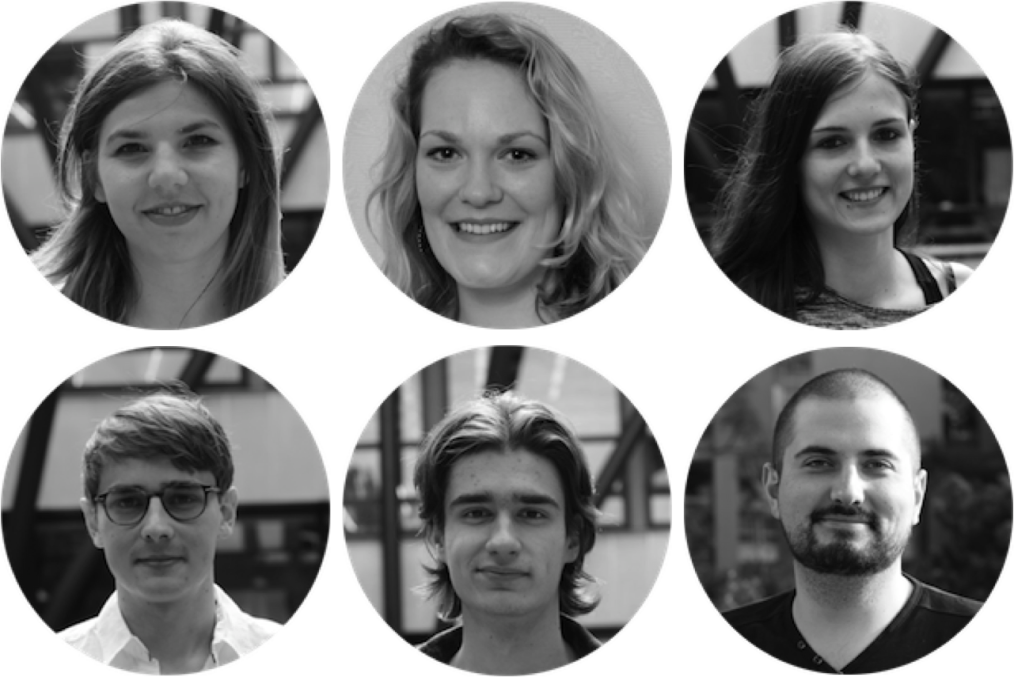
Introducing the Mindwise student board
As we approached the end of the first academic year at Mindwise, we reflected back on the aims and values of this project. From the very beginning, we were certain that Mindwise should be useful, relevant, and interesting to the students of the Psychology department. We wanted them to contribute to the posts on Mindwise (as they did a few weeks ago), talk about the research they are involved in, keep them informed about interesting events they can participate in (you know about the Events Calendar, right?), and help them discover their department more fully. With all of these goals in mind, we decided that the best way to bring Mindwise closer to the students was to bring the students to Mindwise, so I am really happy to introduce today the new student board members who have been with us since September! They are all passionate about Psychology and Mindwise, bring exciting new skills to our board, and have already began working on a variety of new projects that will take Mindwise to new directions. Here they are!
 Anja Ernst
Anja Ernst
Anja is a third-year Psychology Honours student at the University of Groningen. Her main interests lie in statistical analysis, programming and biological psychology. She has a creative side too and so she likes to spent her free time drawing or writing which she now does for the Mindwise website. Anja dreams about becoming a researcher and her favourite colour is blue.
 Hanna Lembcke
Hanna Lembcke
After two years of enjoying the international Psychology programme, Hanna was looking for more. Studying, playing soccer, and writing weren’t enough. The Honours student became very interested in psychological research during her 2nd year research internship at the Department for Experimental Psychology. Spreading the latest news of the Heymans institute and the rest of the psychology world seemed to be an appropriate addition to her regular studies. Showing how exciting psychology can be to a broad audience, and especially to students, is her main goal in the editorial board.
 Martin Duchstein
Martin Duchstein
Martin is a person with unlimited curiosity. He always had a need to look behind the curtain and see the inner workings and interconnections of human behaviour and societal structures. Spending a year in India enhanced his comprehension across different cultures. Within the field of psychology, he is especially interested in research of cognitive and social dimensions. Next to his studies, he enjoys photography and rock climbing.
 Pia Kreijkes
Pia Kreijkes
It took Pia some time to figure out what she wanted to do in life, but after one year of travelling through New Zealand and a second gap year supporting plant reproduction in Germany, she fortunately decided to study psychology in beautiful Groningen. Pia is now a third-year Bachelor student in the English psychology program as well as in the University Honours program, through which she discovered her enthusiasm for research. She is spending the Fall of her third year as an exchange student in Montreal, Canada, taking courses at McGill University and completing a research internship at the CHU Ste-Justine Hospital. Pia’s main interests lie in developmental neuropsychology and educational psychology. In particular, she is interested in the influences of early childhood experiences on brain development and children’s motivation to learn and succeed in school. Besides her studies, she enjoys working as a student editor for Mindwise and a reviewer for the Groningen student journal Honours Review.
 Yavor Ivanov
Yavor Ivanov
Yavor is the youngest addition to the newly formed Student Editorial Board of mindwise. He comes from Sofia, the capital of Bulgaria. He likes: travelling, cheesecake, music, being around lots of nature and/or wildlife, science and philosophy, listening to podcasts, etc (the list goes on…). Yavor currently is a second-year Bachelor student in Psychology, and believes the brain is one of the most fascinating things in the universe. Another very big fascination of his is the Internet, its development and the way it shapes modern-day culture and communication. This, along with his big motivation for creative work and the opportunity for interaction with a lovely audience, is why he chose to become a part of Mindwise.




